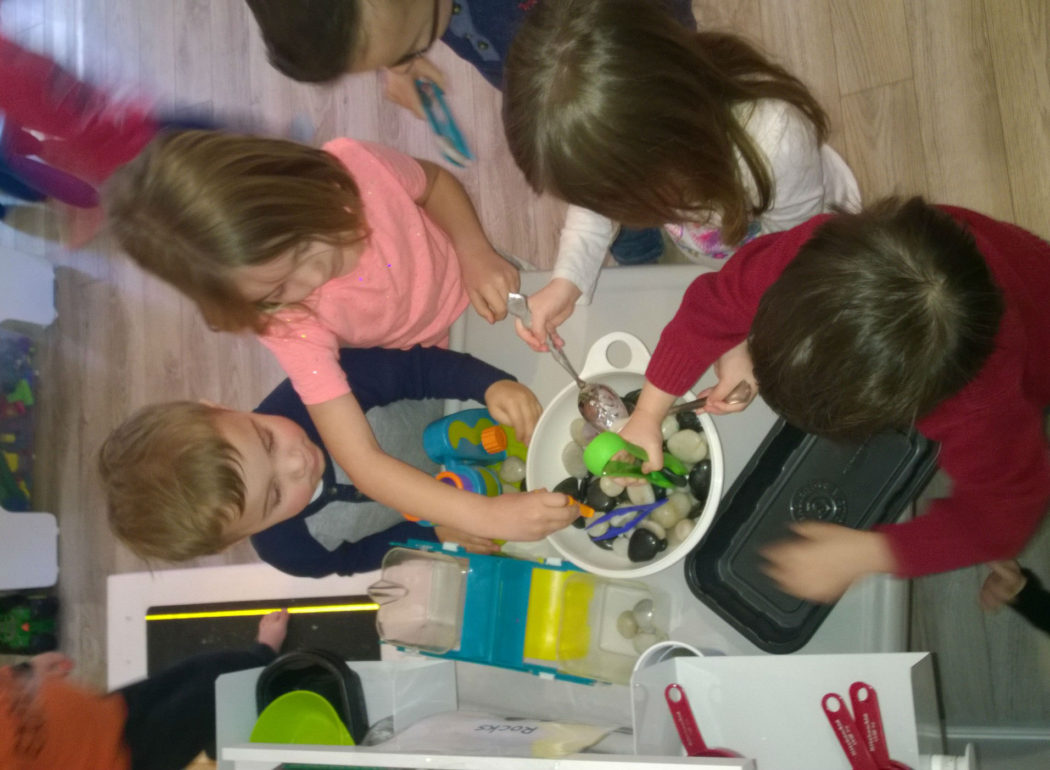Experiences in which the preschool child produces some effect on the world (in contrast with, say, watching television) are crucial to the development of thought processes, because the child’s logic develops from the effort to interpret the information gained through such experiences; interpretation of new information modifies the interpretative structures themselves as the child strives for a more logical internal model of reality. Therefore, if we want children to become intelligent problem solvers, it seems clear that the best way to do so in preschool or child care programs is to give children many opportunities to work on problems of interest to them—that is, problems that arise from their own attempts to comprehend the world.
Educating Young Children While children’s creations may sometimes be messy, unstable, or unrecognizable to adults, the process by which children think about and produce these creations is the way they come to understand their world. It is also important to recognize that the errors children make (“The string won’t hold the block on”) are as important as their successes in providing them with essential information about their original hypotheses. Thus, active learning is an ongoing,inventive process in which children combine materials, experiences, and ideas to produce effects that are new to them. Although adults may take for granted the laws of nature and logic, each child discovers them as if for the first time. Problem solving Experiences in which children produce an effect they may or may not anticipate are crucial to the development of their ability to think and reason. When children encounter real life problems—unexpected outcomes or barriers to fulfilling their intentions—the process of reconciling the unexpected with what they already know about the world stimulates learning and development. For example, Roberto, a child pretending to cook soup, tries to cover the pot of “soup” (water) with a lid. He expects the lid to cover the pan, but instead it falls into the soup and water splashes on his hand. Roberto knows from experience that the lid is supposed to stay on top of the pan, so he decides to place several other lids on the pot until he finds one that fits properly and does not fall into the soup. Through repeated experiences like this, he will learn to consider the size of any cover in relation to the size of an opening.
This is from the article Educating Young Children: Active Learning Practices for Preschool and Child Care Programs
